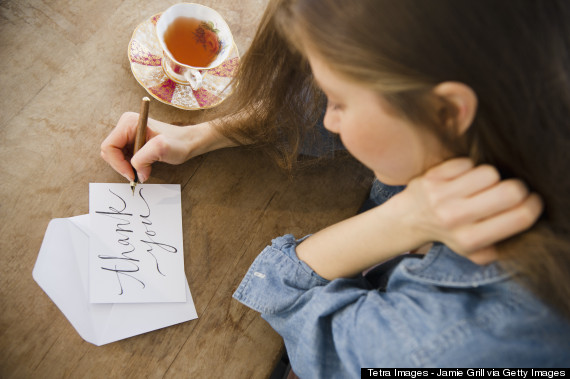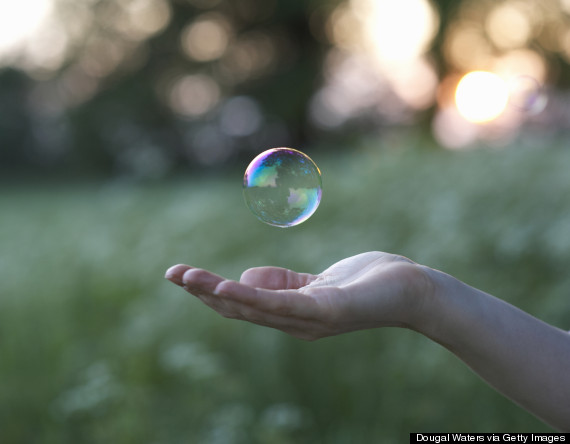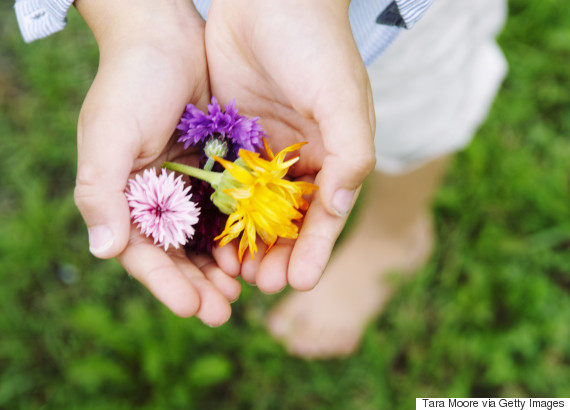
Sometimes, it's the most fantastical, fictional characters that do the best job of teaching us about reality.
New York Times bestselling author T.A. Barron spent decades creating the magical image of Merlin the wizard and sharing his wisdom with children and young adults through the beloved 12-book Merlin Saga series. Now, he's bringing back his recognized (and revered) character to answer a question anyone experiencing a dramatic change in his or her life wants, on some level, to ask.
"I have written so many books about Merlin that sometimes, I feel like I've actually met the great wizard -- and who knows, maybe I have," said Barron in one of his YouTube videos. "If I met Merlin in his crystal cave, I'd ask him just one question: What is the meaning of life? And if there is any meaning, how can I find it?"
This thought exercise inspired a celebrated speech at Oxford University in 2013, which in turn inspired a new book, The Wisdom of Merlin: 7 Magical Words for a Meaningful Life. Inside, Barron uses Merlin's voice to explain how each person can find and travel along his or her own unique path in life. He reveals how magic surrounds and lives within each and every person -- we just have to be willing to search for it.
Based on excerpts from Barron's book, here are seven moving words that hold the key to a meaningful life -- plus one more that empowers them all.
Gratitude

To be wholly alive is to be grateful -- for every breath we take, every song we sing, every person we love, every day we discover. Just being grateful helps us to notice and appreciate all the blessings and opportunities around us.
Each day, take a moment to just be. To love a person, a place, or an idea that has touched your heart. Cherish those blessings through all the seasons of a year -- and all the seasons of your life.
Excerpted from The Wisdom of Merlin by T.A. Barron (Philomel Books)
Courage

You see, life can have great meaning -- but only if we discover that meaning for ourselves. Meaning can't be bought at any store. And it can't be handed down like a coat that someone tells you will fit perfectly before you've even tried it on. Meaning must be sought and earned and made one's own. All of which requires courage.
Be bold with your life! Live vigorously and gently, mindfully and sensuously. Explore whatever calls to you. Love fully and freely. Run as fast as you can; walk as slow as you can.
Excerpted from The Wisdom of Merlin by T.A. Barron (Philomel Books)
Knowledge

Knowledge, surprising as it sounds, begins with the unknown. With accepting how little you know. A few drops of humility, I've learned, can save me from an ocean of arrogance! Then, with a touch of curiosity... a person can learn and grow endlessly.
There are two universes to explore -- one inside yourself and one outside. And here's the best part: How far you travel in each, and what you discover, is entirely up to you.
Excerpted from The Wisdom of Merlin by T.A. Barron (Philomel Books)
Belief

Follow your faith, as a river flows to the sea -- and you will find yourself lapped by the gentle waves of the spiritual ocean that surrounds us all. To swim in that sea is to join with a greater power, a deeper awareness, a higher truth. And also... a quiet, enduring joy.
Just remember: For your belief to be right, the beliefs of others need not be wrong! If you are truly secure in your own faith, truly touched by its wisdom and strength -- then you don't need to convert anyone else.
Excerpted from The Wisdom of Merlin by T.A. Barron (Philomel Books)
Wonder

Wonder is the elemental wisdom of a child, a wisdom that is wide open to awe. For children see the world afresh, in all its beauty and strangeness, mystery and delight.
To wonder is to open the doorway to imagination. And that leads to other doorways -- appreciation, creativity, and fulfillment.
At the core of wonder is openness -- being present, with all your senses alive. If you set out on a mission seeking wonder, you won't find it. Instead, take off your shoes, walk barefoot in the world... and allow it to happen.
Excerpted from The Wisdom of Merlin by T.A. Barron (Philomel Books)
Generosity

Generosity is not giving others what they want. Rather, it's giving away what you yourself want. Sharing requires empathy. So the physical act of making a gift is only part of what happens. It's the visible result of an earlier, invisible gift from the heart.
Plant some generous seeds in the soil of your life. Yes -- seeds that could grow into trees you may never see, in whose shade will gather people and creatures you may never meet. They will find joy and safety and solace under those boughs... and they will thank the person who made it possible.
Excerpted from The Wisdom of Merlin by T.A. Barron (Philomel Books)
Hope

Hope requires courage. Especially in our troubled world, with so much darkened by the shadow of despair, hope can seem elusive. Or even impossible. Yet hope can return, on silent wings, when most needed.
Cynicism is the enemy of hope, always doubting that improvement (or even virtue) is possible. But fresh thinking is the ally of hope, reminding us of ways we can do better.
Blow on the embers of hope in yourself. Strengthen them into flames, For those are the fires where new worlds are born.
Excerpted from The Wisdom of Merlin by T.A. Barron (Philomel Books)
Love

Love is an invitation, not a command. But if you truly open yourself to its power, you will be swept away as if you had plunged into a mighty river. Where that river may carry you, no one can predict.
The paradox of love is that it beckons us to go deep within ourselves to find a soul-level understanding of another person. But once that understanding is found -- we are bonded with that person so that we expand far beyond ourselves. We are, at once, deeper within and further without.
Excerpted from The Wisdom of Merlin by T.A. Barron (Philomel Books)
For the complete collection of life wisdom from Merlin and his creator, check out The Wisdom of Merlin by T.A. Barron.
Related
Before You Go

New research suggests that there is. When a study in the Journal of Positive Psychology tried to disentangle the concepts of "meaning" and "happiness" by surveying roughly 400 Americans, it found considerable overlap between the two -- but also some key distinctions.
Based on those surveys, for instance, feeling good and having one's needs met seem integral to happiness but unrelated to meaning. Happy people seem to dwell in the present moment, not the past or future, whereas meaning seems to involve linking past, present, and future. People derive meaningfulness (but not necessarily happiness) from helping others -- being a "giver" -- whereas people derive happiness (but not necessarily meaningfulness) from being a "taker." And while social connections are important to meaning and happiness, the type of connection matters: Spending time with friends is important to happiness but not meaning, whereas the opposite is true for spending time with loved ones.
And other research published in the Proceedings of the National Academy of Sciences suggests that these differences might have important implications for our health. When Barbara Fredrickson and Steve Cole compared the immune cells of people who reported being "happy" with those of people who reported "a sense of direction and meaning," the people leading meaningful lives seemed to have stronger immune systems.

But a paper published in the Journal of Personality and Social Psychology suggested that this finding holds up around the world, even in countries where sharing with others might threaten someone's own subsistence.
In one study, the researchers examined data of more than 200,000 people from 136 countries; they determined that donating to charity in the past month boosts happiness "in most individual countries and all major regions of the world," cutting across cultures and levels of economic well-being. It was even true regardless of whether someone said they’d had trouble securing food for their family in the past year.
When the researchers zeroed in on three countries with vastly different levels of wealth -- Canada, Uganda and India -- they found that people reported greater happiness recalling a time when they'd spent money on others than when they’d spent on themselves. And in a study comparing Canada and South Africa, people reported feeling happier after donating to charity than after buying themselves a treat, even though they would never meet the beneficiary of their largess. This suggests to the researchers that their happiness didn't result from feeling like they were strengthening social connections or improving their reputation but from a deeply ingrained human instinct.
In fact, they argue, the nearly universal emotional benefits of altruism suggest it is a product of evolution, perpetuating behavior that "may have carried short-term costs but long-term benefits for survival over human evolutionary history."

The first study, published in Psychological Science, found that people who took an eight-week mindfulness meditation course were significantly more likely than a control group to give up their waiting-room seat for a person on crutches. This was true despite the fact that other people in the waiting room (who were secretly working with the researchers) didn't acknowledge the person in need or make any gesture to give up their own seats; prior research suggests that this kind of inaction strongly deters bystanders from helping out, but that wasn't the case when the bystanders had received training in mindfulness.
A few weeks later, another study published in Psychological Science echoed that finding. In this second study, which was unrelated to the first, people who had practiced a mindfulness-based "compassion meditation" for a total of just seven hours over two weeks were significantly more likely than people who hadn’t received the training to give money to a stranger in need. What's more, after completing their training, the meditation group showed noticeable changes in brain activity, including in networks linked to understanding the suffering of others.
"Our findings," wrote the authors of the second study, "support the possibility that compassion and altruism can be viewed as trainable skills rather than as stable traits."

In 2013, a collaborative project between researchers in Spain and France and at the University of Wisconsin found that when experienced meditators meditate, they quiet down the genes that express bodily inflammation in response to stress.
How did they figure this out? Before and after two different retreat days, the researchers drew blood samples from 19 long-term meditators (averaging more than 6000 lifetime hours) and 21 inexperienced people. During the retreat, the meditators meditated and discussed the benefits and advantages of meditation; the non-meditators read, played games and walked around.
After this experience, the meditators’ inflammation genes -- measured by blood concentrations of enzymes that catalyze or are a byproduct of gene expression -- were less active. Blood samples from the people in the leisure-day condition did not show these changes.
Why does this matter? The researchers also looked at their study participants' ability to recover from a stressful event. Long-term meditators' ability to turn down inflammatory genes, it turns out, predicted how quickly stress hormones in their saliva diminished after a stressful experience -- a sign of healthy coping and resilience that can potentially lead to a longer life.
This is good news to people who come from a family of stress cases who are stress-prone themselves: There are steps you can take to mitigate the impact of stressful events. Hard as it may be to find time or get excited about meditating, mounting evidence suggests that it can offer more concrete advantages to a healthy life than the leisurely activities we more readily seek.

Although mindfulness-based programs are not uncommon in schools these days, they've mainly been deployed to enhance students’ social, emotional and cognitive skills; only a handful of programs and studies have examined the benefits of mindfulness for teachers, and in those cases, the research has focused largely on the general benefits for teachers' mental health.
But in 2013, researchers at the University of Wisconsin's Center for Investigating Healthy Minds broke new ground when they studied the impact of an eight-week mindfulness course developed specifically for teachers, looking not only at its effects on the teachers' emotional well-being and levels of stress but also on their performance in the classroom.
They found that teachers randomly assigned to take the course felt less anxious, depressed and burned out afterward, and felt more compassionate toward themselves. What's more, according to experts who watched the teachers in action, these teachers ran more productive classrooms after completing the course and improved at managing their students' behavior as well. The results, published in Mind, Brain, and Education, show that stress and burnout levels actually increased among teachers who didn't take the course.
The researchers speculate that mindfulness may carry these benefits for teachers because it helps them cope with classroom stress and stay focused on their work. "Mindfulness-based practices offer promise as a tool for enhancing teaching quality," write the researchers, "which may, in turn, promote positive student outcomes and school success."